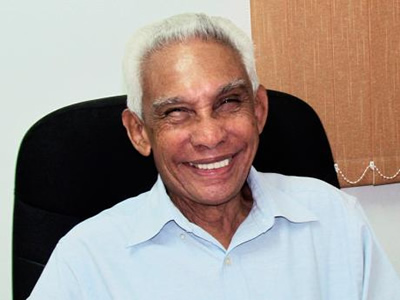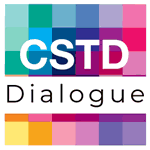Written byArnoldo K Ventura, Secretary and Chairman of the Implementation Committee of the Caribbean Community (CARICOM) Science and Technology Committee (CSTIC)
Increasing poverty and marginalization in the South are directly due to the erosion of competitiveness, trade, jobs and environmental stability spawned by the scientific dominance of the North and the inadequate responses of the South.
Therefore, to eradicate poverty in all its forms and spread, science and its technologies must not be seen simply as desirable options, but urgent imperatives.
Regarding science simply as a powerful economic instrument, while downplaying its social and environmental roles, is to deny its original purpose of taming the brutishness of humankind.
The best of science consequently will emerge, not only from exact quantitative research designs but perhaps more importantly, from social and psychological methods to ensure more humane uses of science.
There is no doubt that science and the technologies derived from it, are the foundations of the economic success of the developed North and a few of the recently developed countries of the South. This was so whether these states were big or small, resource rich or poor, capitalist or socialist.
These tools determined living standards, as well as the ability of countries and communities to respond to inexorable challenges, such as climate change, emerging diseases and food security. Essentially, there is no substitute for science and technology (S&T) and no respite or middle ground from their impacts. Support and embrace these instruments and socio-economic progress is possible, ignore them, and decline is guaranteed. No country in the modern era has been able to make substantial strides in meeting the needs of its citizens without the use of scientific knowledge.
Underdeveloped countries are those that have neglected or ignored investments in S&T. In these states, poverty has become chronic and unaffordable in both economic and social terms. As the knowledge gap between the North and the South widens, the hopes for a better life are progressively been diminished, and the poor are the first to suffer when there are economic and environmental calamities.
Providing safety nets keep poverty firmly fixed at great threats to law and order. Effective S&T infrastructures and communities having poverty eradication as their primary goal is much cheaper than grappling with the ever escalating costs of poverty. Moreover, since the poor share the same air, water and environment with the affluent, whatever damage results from poverty today, will eventually become the bane of the rich tomorrow.
The best way to tackle this situation in underdeveloped countries is to build S&T competences that can identify the traditional and conventional technologies that have kept them intact for millennia and thereafter seek to merge them with more advanced conventional and emerging ones. The idea is to preserve the best ecological and cultural aspects of the traditional and older conventional methods and improve their efficiencies and impacts to enable acceptance of change and increase competitiveness through skills enrichment.
These technological marriages will give a clear national focus to domestic S&T policies and plans, and provide meaningful indicators with which to measure their effectiveness. Since many of the conventional and frontier technologies will have to be transferred from the global pool, a close and respectful relationship between local and international expertise have to be struck. This relationship will only be successful if the needs of the underdeveloped partners are understood from their perspective and the ensuing solutions are crafted underpinned by their realities.
What must be done to ensure that the potential offered by science, technology and innovation towards achieving the SDGs is ultimately realized?
In the context of the UN Commission on Science and Technology for Development, the CSTD Dialogue brings together leaders and experts to address this question and contribute to rigorous thinking on the opportunities and challenges of STI in several crucial areas including gender equality, food security and poverty reduction.
The conversation continues at the twenty-second session of the CSTD and as an online exchange by thought leaders.


